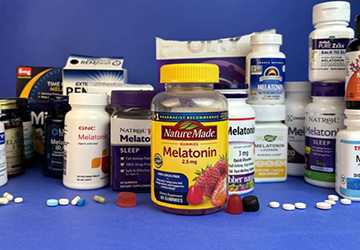How to Sleep Better and Wake Refreshed
Getting a good night's sleep is essential for maintaining your health and well-being. Quality sleep helps improve your mood, boosts your immune system, and enhances your overall productivity. However, many people struggle to get restful sleep. Here are some practical tips to help you sleep better and wake up feeling refreshed.

Create a Consistent Sleep Schedule
Establishing a regular sleep schedule is one of the most effective ways to improve your sleep. Try to go to bed and wake up simultaneously every day, even on weekends. This consistency helps regulate your body's internal clock, making it easier to fall asleep and wake up naturally.
Make Your Bedroom a Sleep Sanctuary
Your bedroom environment plays a crucial role in the quality of your sleep. Here are a few ways to create an ideal sleep environment:
Keep it cool: Aim for a bedroom temperature between 60-67°F (15 19- °C). A more relaxed room can help you fall asleep faster and stay asleep longer.
Reduce noise: Use earplugs or a white noise machine to block out disruptive sounds.
Limit light exposure: Invest in blackout curtains to keep your room dark. Consider using an eye mask if needed.
Comfortable bedding: Ensure your mattress and pillows are comfortable and supportive. Replace them if they are old or uncomfortable.
Limit Exposure to Screens Before Bed
The blue light emitted by phones, tablets, computers, and TVs can interfere with your body's production of melatonin, the hormone that regulates sleep. Try to avoid screens for at least an hour before bedtime. Instead, relax by reading a book, listening to soothing music, or taking a warm bath.
Watch What You Eat and Drink
What you consume in the hours leading up to bedtime can significantly impact your sleep:
Avoid heavy meals: Eating a large meal late at night can cause discomfort and indigestion, making it hard to sleep.
Limit caffeine and nicotine: Both are stimulants that can interfere with sleep. Try to avoid them in the afternoon and evening.
Cut back on alcohol: Though alcohol may help you fall asleep at first, it can interfere with your sleep cycle and lower the quality of your rest.
Stay hydrated: Drinking enough water throughout the day is essential, but avoid large amounts right before bed to minimize nighttime trips to the bathroom.
Get Regular Exercise
Regular physical activity can help you fall asleep faster and enjoy deeper sleep. However, aim to complete your workout a few hours before bedtime. Exercising too close to bedtime can have the opposite effect, making it more difficult to fall asleep.
Manage Stress and Anxiety
Stress and anxiety are common culprits behind poor sleep. Finding effective ways to manage stress can improve your sleep quality. Consider these strategies:
Practice relaxation techniques: Deep breathing, meditation, and progressive muscle relaxation can help calm your mind and prepare your body for sleep.
Create a bedtime routine: Create a calming pre-sleep routine to signal your body that it's time to wind down; this could involve reading, gentle stretching, or listening to soothing music.
Keep a worry journal: If racing thoughts keep you up at night, try writing them down in a journal before bed; this can help clear your mind and reduce anxiety.
Limit Naps
While taking a nap can help you recover lost sleep, long or irregular daytime naps can disrupt your nighttime rest. If you must nap, limit it to 20-30 minutes and avoid napping late in the afternoon.
Seek Professional Help if Needed
If you've tried different strategies but still have trouble sleeping, it may be time to seek professional assistance. Sleep disorders like insomnia, sleep apnea, and restless leg syndrome can significantly impact your sleep quality and overall health. A healthcare provider can help diagnose and treat these conditions, improving your sleep and well-being.
Natural Sleep Aids
While addressing the root causes of poor sleep is best, some people find natural sleep aids helpful. Here are a few to consider:
Melatonin supplements: Melatonin is a hormone that regulates sleep. Taking melatonin supplements can help with sleep onset, especially for those with irregular sleep schedules.

Herbal teas: Teas such as chamomile, valerian root, and lavender are recognized for their soothing properties and can help you relax before bedtime.
Essential oils: Aromatherapy with essential oils like lavender or chamomile can create a relaxing atmosphere conducive to sleep.
The Importance of Sunlight Exposure
Exposure to natural daylight during the day helps regulate your circadian rhythm, which manages your sleep-wake cycle. Try to spend some time outside in natural sunlight each day, especially in the morning. If you can't get outside, consider using a light therapy box to simulate natural light.
The Role of Sleep Cycles
Understanding sleep cycles can also help you optimize your rest. Your sleep comprises multiple cycles, each around 90 minutes long, and includes various stages such as light sleep, deep sleep, and REM (rapid eye movement) sleep. Waking up at the end of a sleep cycle can help you feel more refreshed. You can use sleep-tracking apps or devices to monitor your sleep patterns and find the optimal time to wake up.
Avoid Stimulants Before Bed
Certain activities and substances can act as stimulants, making it harder to fall asleep. Here are a few to avoid before bed:
Exercise: While regular exercise is beneficial, vigorous activity right before bed can keep you awake.
Spicy or acidic foods can cause heartburn or indigestion, disrupting sleep.
Large amounts of liquids: Drinking too much before bed can lead to frequent bathroom trips.
Cultivate Healthy Daytime Habits
What you do during the day can impact your sleep at night. Consider these tips:
Maintain a balanced diet: Eating a healthy diet can improve your overall health and sleep quality.
Stay hydrated: Dehydration can cause discomfort and disrupt your sleep. Drink plenty of water throughout the day.
Limit alcohol: While alcohol can make you feel drowsy, it can disrupt your sleep cycle and reduce sleep quality.
Conclusion
Improving your sleep requires a combination of lifestyle changes, healthy habits, and creating a sleep-friendly environment. By following these tips, you can enhance the quality of your sleep and wake up feeling refreshed and ready to tackle the day. If you have trouble sleeping, seek professional help to figure out any underlying problems. A good night's sleep is within reach, and your health and well-being benefits are worth the effort.